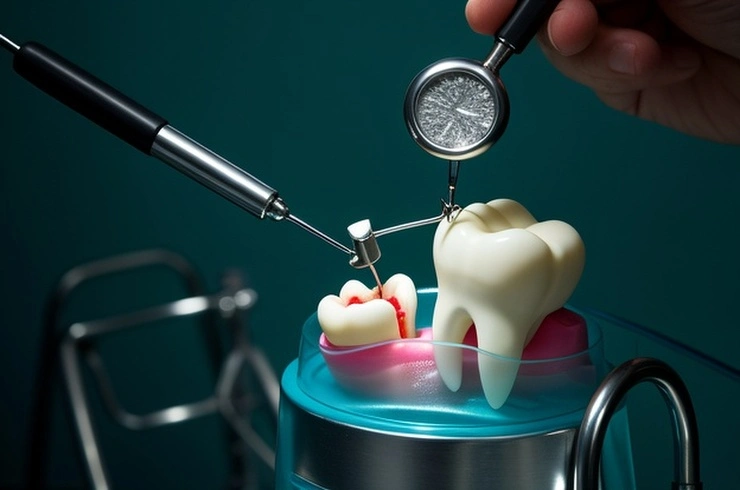
Wisdom teeth, also known as third molars, are the last set of teeth to emerge, typically in late adolescence or early adulthood. While some individuals' wisdom teeth erupt without issue, growing into proper alignment, a significant number experience complications that necessitate their removal. Early extraction, particularly during young adulthood when roots are less developed, can lead to a smoother procedure and faster recovery.
Why Wisdom Teeth Often Need Removal
The primary reason for wisdom tooth extraction is impaction. An impacted wisdom tooth is one that is unable to fully erupt through the gum line, often because there isn't enough space in the jaw. These impactions can be:
Partially Erupted: The tooth breaks through the gum only partially, creating a flap of gum tissue that can trap food and bacteria, leading to infections (pericoronitis), pain, and swelling.
Fully Impacted: The tooth remains completely encased within the gum tissue and/or jawbone. This can put pressure on neighboring teeth, causing damage, shifting, or creating cysts and tumors that can damage bone.
Misaligned: Wisdom teeth can grow at various angles (mesial, distal, horizontal, vertical impaction), pushing against adjacent molars, causing overcrowding, or making oral hygiene difficult, leading to cavities and gum disease.
Beyond impaction, other reasons for removal include pain, infection, gum disease, and potential damage to surrounding teeth.
Factors Influencing Extraction Costs
The cost of wisdom tooth extraction can vary significantly based on several key factors:
Type of Impaction: This is the most substantial cost driver.
Simple Extraction: For fully erupted teeth with straightforward roots, using only local anesthesia, costs typically range from $75 to $200 per tooth.
Impacted Extraction: The price increases for impacted teeth. A partially erupted tooth (soft tissue impaction) is generally less expensive than a tooth fully encased in the jawbone (bony impaction), which requires more complex surgical intervention. These can range from $225 to $600 per tooth with local anesthesia.
Anesthesia Required:
Local Anesthesia: Usually included in the basic extraction cost.
Nitrous Oxide (Laughing Gas): An additional $40-$90 to help relax the patient.
General Anesthesia: Administered by an oral maxillofacial surgeon to put the patient to sleep, costing anywhere from $250 to $800.
Location: Costs can vary geographically, with procedures in larger metropolitan areas often being more expensive.
Additional Services:
Dental X-rays (Radiographs): Essential for diagnosis, averaging around $150.
Initial and Follow-up Exams: Approximately $100 per appointment.
Medications: Post-operative pain relievers and antibiotics are additional costs.
Complexity: The overall difficulty of the case, including the number of teeth being removed and any unforeseen complications, can influence the final bill.
Financing Your Wisdom Tooth Extraction
Several options can help mitigate the financial burden of wisdom tooth removal:
Dental Insurance: Many dental and even some medical insurance plans will cover a portion of the procedure if it's deemed medically necessary, often up to 50% or a maximum of $1,000-$1,500. Always verify your specific coverage with your provider before the procedure.
Packages and Payment Plans: Oral surgeons may offer package deals for removing multiple wisdom teeth simultaneously. Many also provide flexible payment plans, allowing you to pay the total cost in smaller, manageable installments over time.
Discount Dental Plans: These plans typically involve an annual fee in exchange for discounted rates on a network of dental procedures throughout the year. Inquire with your dental professional about available discount plans.
Out-of-Pocket Payment: For those without insurance or who prefer to pay upfront, this is always an option.
Addressing wisdom teeth issues promptly can prevent more severe and potentially more costly complications down the line. Consult with your dental professional and insurance provider to explore the best options for your specific situation.
Pro Tip
The content of the article is shared by netizens, please carefully identify it